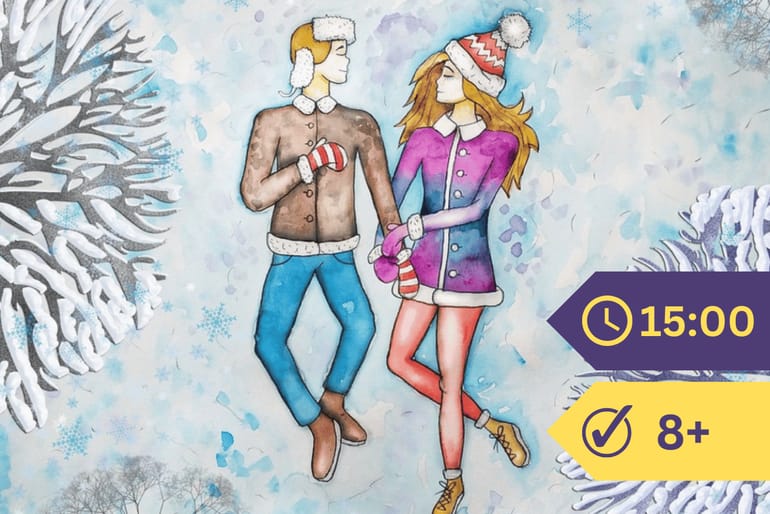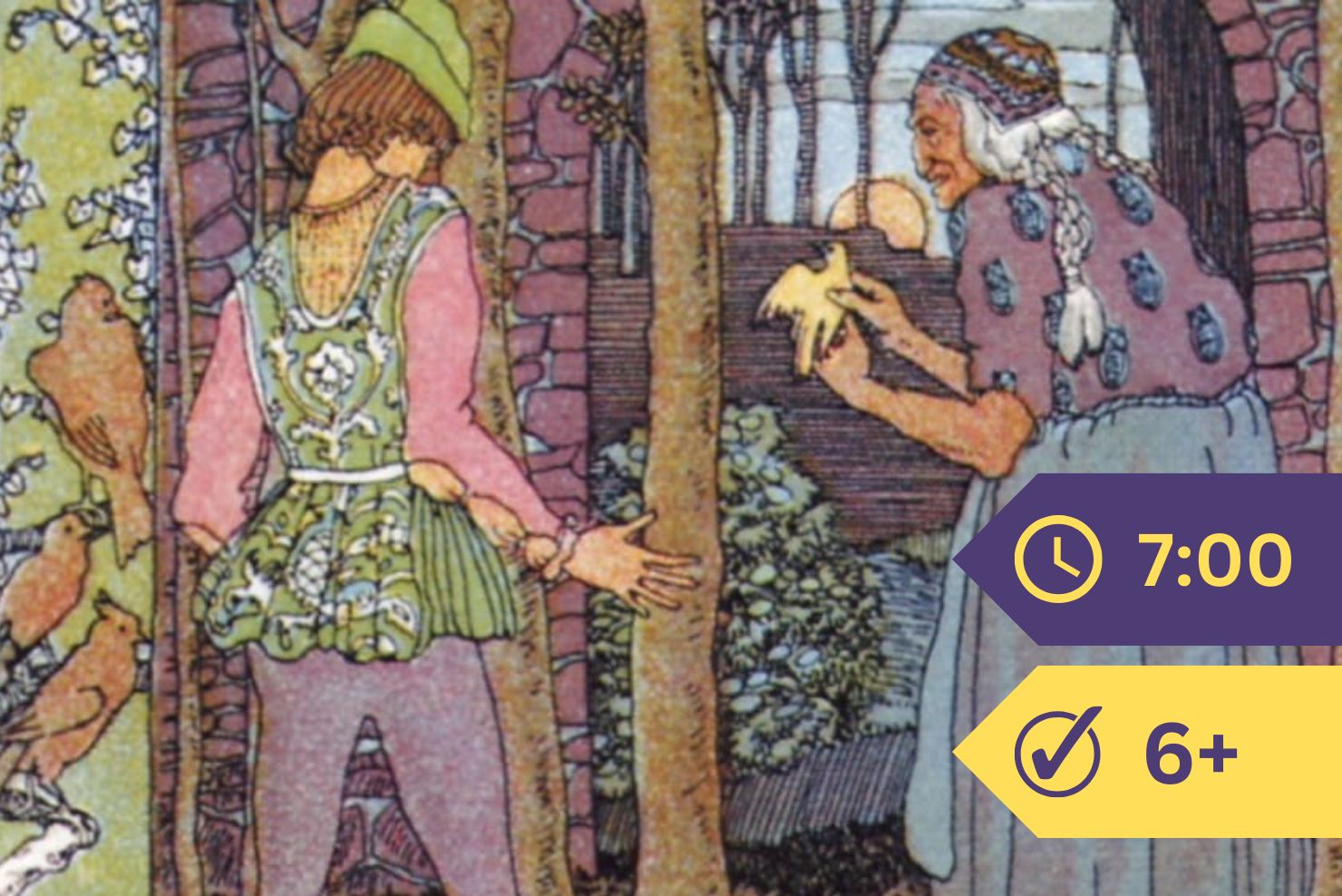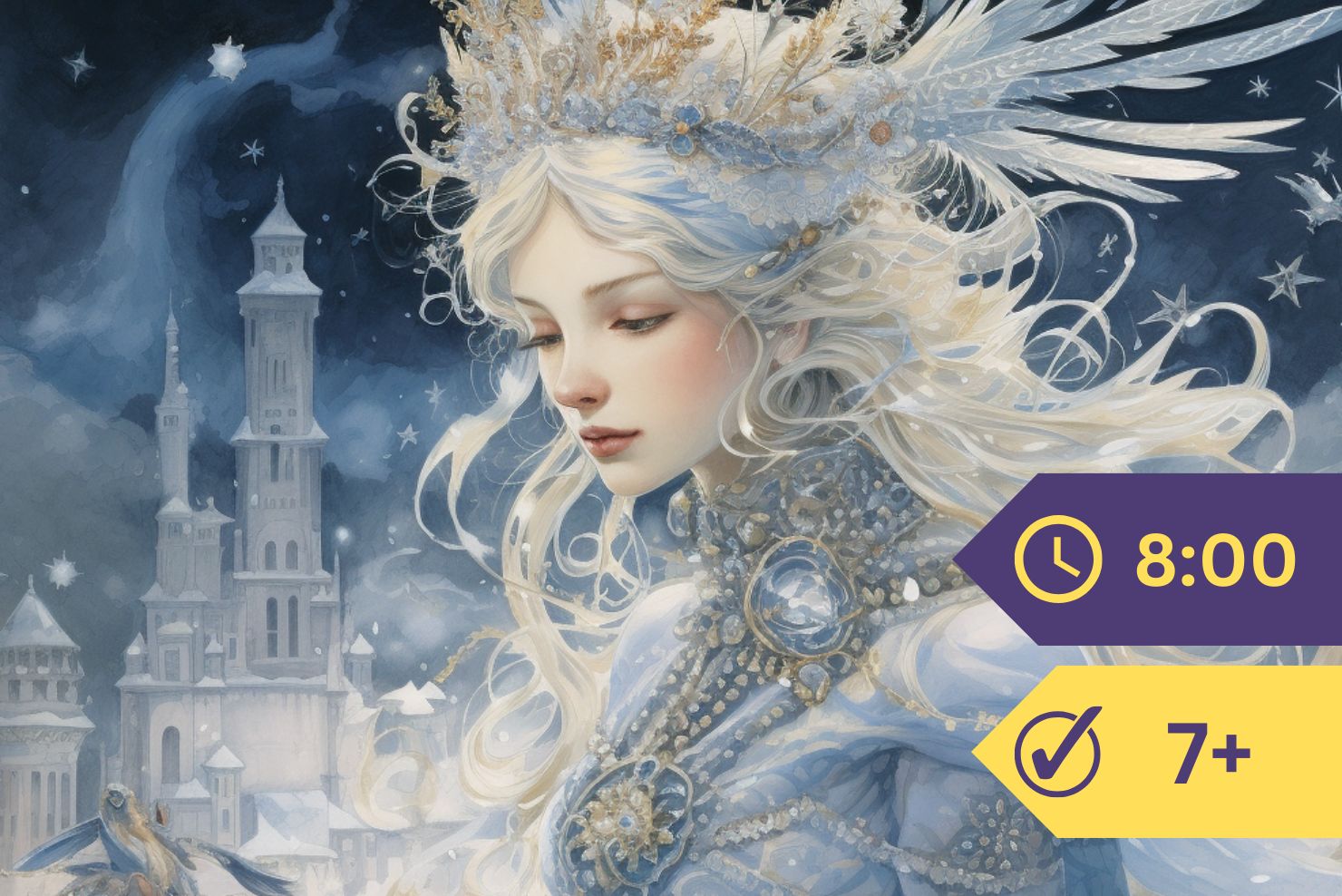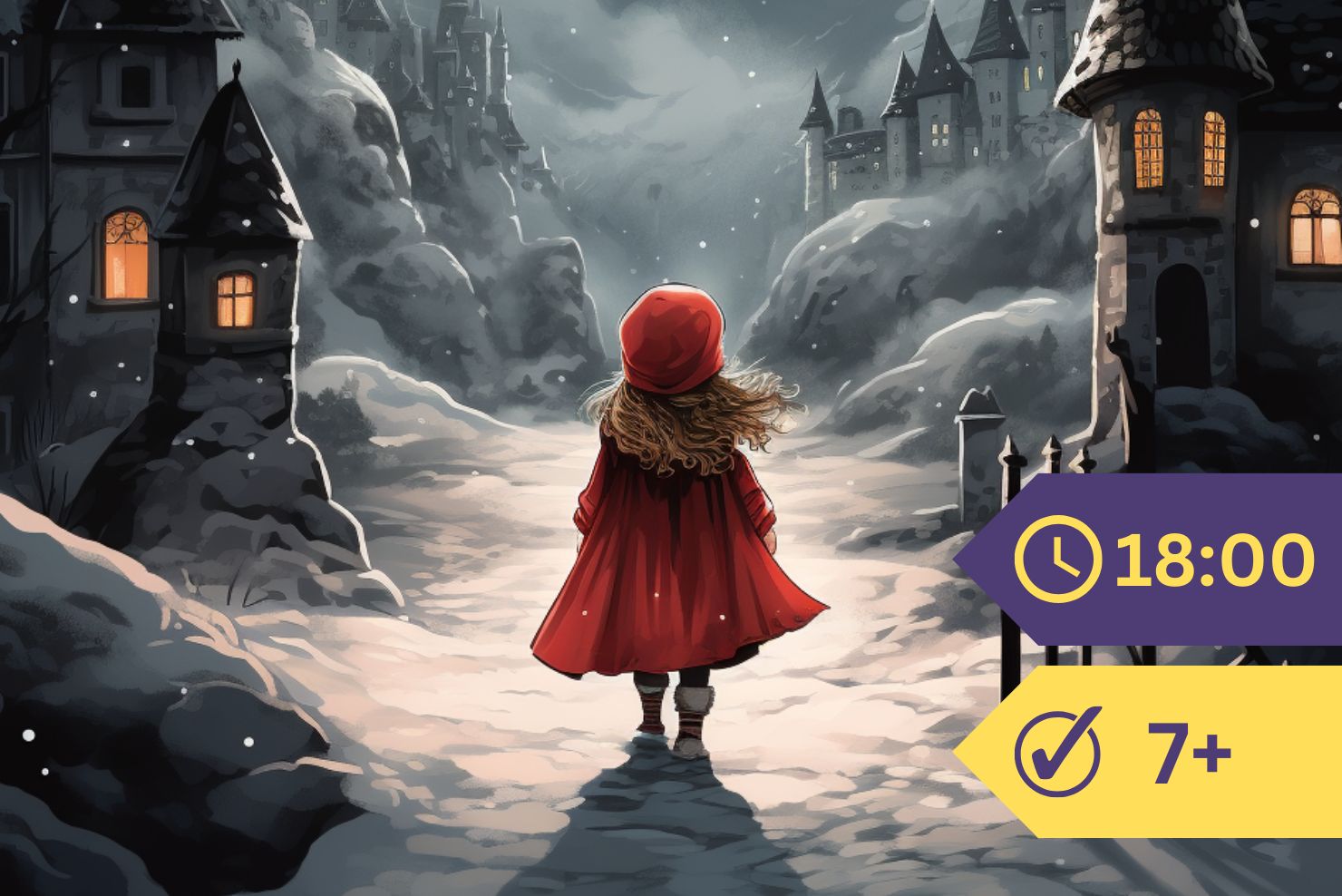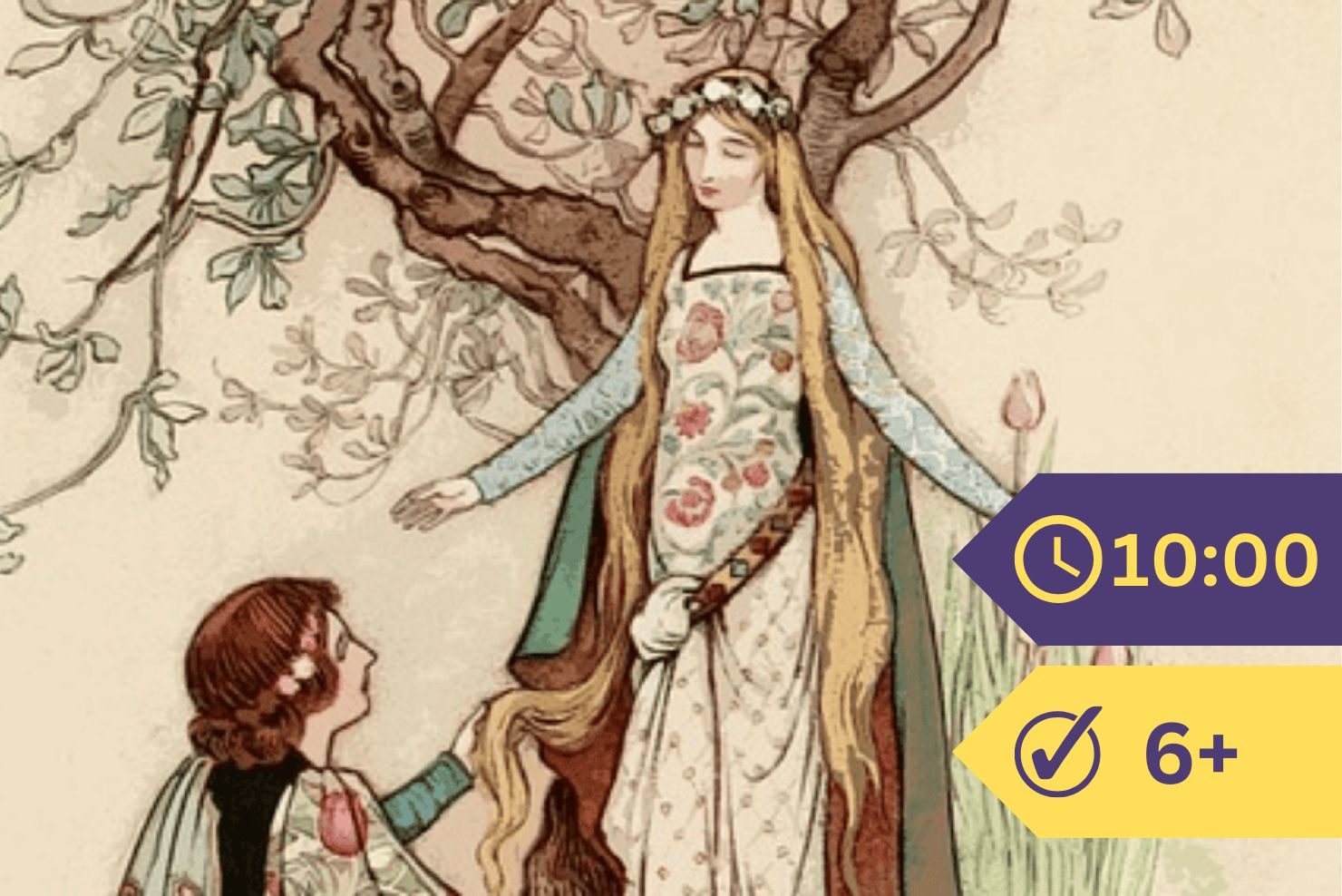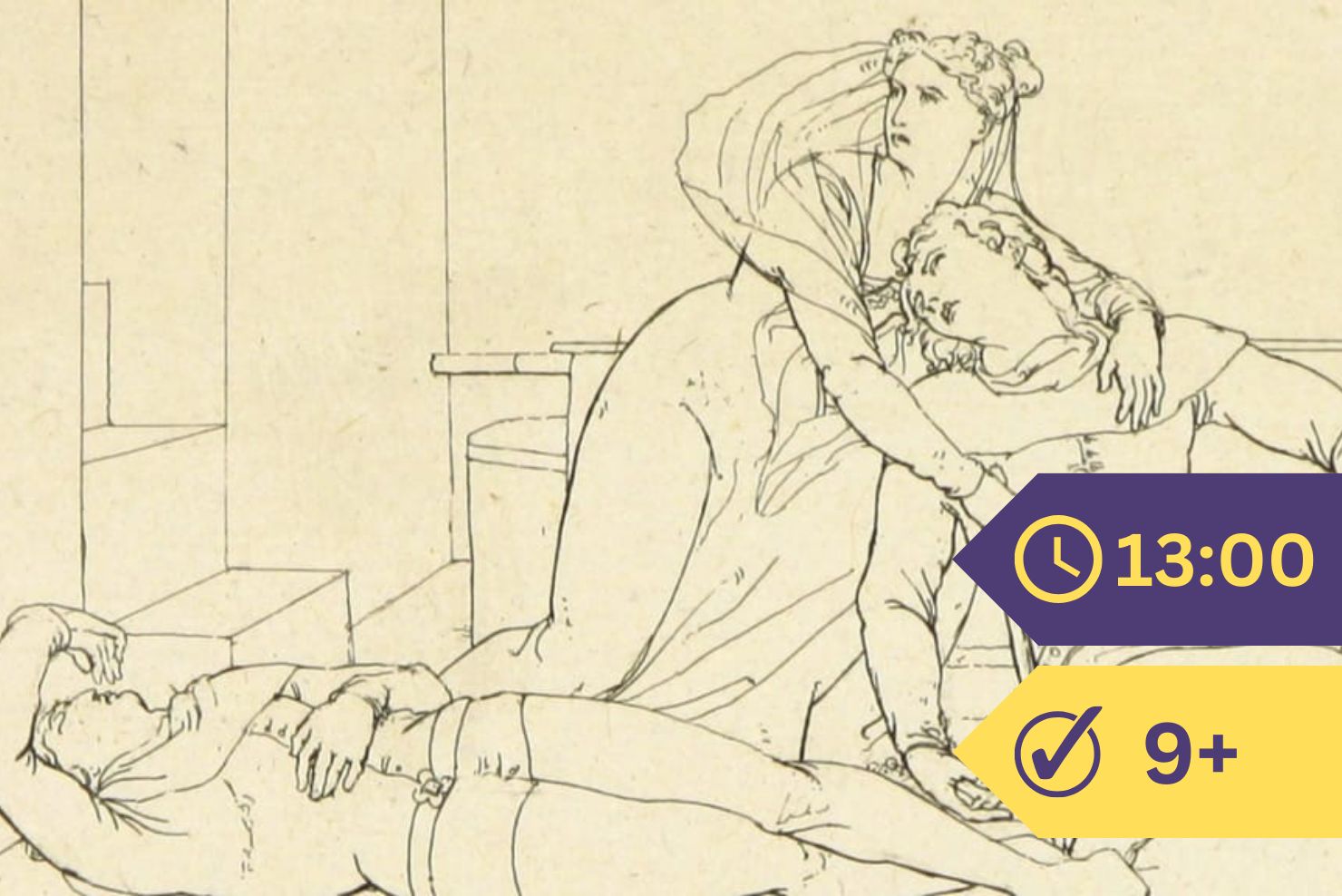Once there were two little children. Their parents were neighbors, and the children loved playing in both gardens. They ran from one garden to the other. In one of the gardens, elderberry grew, and in the other, an old willow. The children loved to play under this tree. It was allowed by their parents as long as they were careful not to fall into the water.
In their city, there was a fair sometimes, and there was also a candy man. The man always stayed with little Knud’s parents. Now and then, he gave a gingerbread as a gift, and of course, Joanna also got a piece. But what was almost even more exciting were the stories of the candy man. So one evening, he told them a story that made such a deep impression on the children that they never forgot it, and therefore, I think it’s nice if you hear it too.
“Once there were two gingerbreads on my counter,” he said. One in the shape of a boy with a hat, and the other in the shape of a girl without a hat. They were put up for sale on the counter, and after a while, they fell in love with each other. But neither spoke to the other, so nothing happened. “He’s a man, he should be the first to speak,” thought the gingerbread girl. Still, she felt very happy – she was sure her love was reciprocated. But the boy had other thoughts. He dreamed that he was a real street boy, that he had four real coins, and that he had bought the gingerbread girl and eaten her. And so they lay on the counter for days and weeks until they became hard and dry. But the girl’s thoughts became increasingly devoted: “Oh, it is enough for me that I have been able to live with him on the same counter,” and then she suddenly broke in two with a “crack.” “Oh,” said the gingerbread boy to himself, “if she had known about my love, she would have remained whole a little longer.”
“And that was their story,” said the candy man. A story of a silent love that never came to anything. He then gave Joanna the gingerbread boy, which was still whole, and Knud the broken girl, but the children were so impressed by the story that they didn’t have the heart to eat the lovers.
The next day, they sat under the ivy-covered church wall and took the two gingerbread figures with them. They stuck them in the sun between the green leaves and then told the story of their silent love to a group of children. They called it ‘love’ because the story was so beautiful, and the other children agreed. But when they turned around to look at the gingerbread couple, the broken girl was gone! A bad boy had quickly eaten her. At first, the children thought it was a pity, but afterwards, they thought it was better that the poor lover didn’t remain alone, so they ate him too. But they never forgot the story of the gingerbread couple.
The two children played under the willow for many years. The girl sang beautiful songs. The people who passed by stopped to listen to Joanna’s beautiful clear voice. But this happy time came to an end when the neighbors were separated. The girl’s mother died, and the father went to live in the capital Copenhagen with Joanna. They said tearful goodbyes to each other, but their parents promised to write to each other.

Afterwards, Knud went to study with a shoemaker. He grew up to be a strong young man and was a diligent student until he became a shoemaker himself. He had never seen the great city of Copenhagen. He thought about Joanna very often! But did she think of him too? On Christmas, a letter arrived from Joanna’s father to Knud’s parents, stating that things were going very well in Copenhagen. They also said that Joanna would be giving many concerts with her beautiful voice and would be making a lot of money. They also said that Joanna sent her warm greetings to Knud. The neighbors were happy to hear the good news and Knud now knew that Joanna was also thinking of him. It became clear to him that she had to be his wife. He smiled at the thought. He had not forgotten the story of the gingerbread couple with their silent love, and he wanted to do things differently.
Finally, his apprenticeship was over and he prepared for his first trip to Copenhagen. A master was waiting for him there, but he thought of Joanna and how happy she would be to see him. So, after saying goodbye to his parents, he set out on foot from his hometown towards Copenhagen.
The following Sunday, he planned to make his first visit to Joanna’s father. When the day arrived, he took out his new clothes and a new hat. The house was easy to find, but he was surprised at how closely people lived together in this busy city. Joanna’s father received him very kindly.
“Joanna will be very happy to see you,” her father said. “You have become a nice young man.” He knocked on her bedroom door. Knud only had eyes for Joanna. She looked mature and was very beautiful. They looked at each other in surprise, but then she ran to him. Yes, she was really happy to see her childhood friend again, and tears even came to her eyes. Then she asked many questions about Knud’s parents, the elderberry tree, and the willow, which they called “elder mother and willow father,” and she talked about the gingerbread couple.
About the story of their silent love, and how they lay together on the counter and split in two. She laughed heartily about it. But blood rushed to Knud’s cheeks and his heart beat quickly. He heard that her parents had invited him to stay with them for the whole evening. She sang a simple song. Her singing sounded as if it were true, and it was as if she was pouring out the feelings of her own heart.
“Oh,” he thought, “she knows that I love her very much.” When he left, she shook his hand and said, “You have a good heart, Knud, always stay as you are.” What a happy evening it had been, Knud couldn’t sleep. Joanna’s father had asked him, at the farewell, to come back soon.
“I will see her again on Sunday,” Knud said to himself, “and then I will tell her that I love her with all my heart and that I want her to be my wife. I know that I am only a poor shoemaker, but I will work hard and later become a master shoemaker myself. I will talk to her because a silent love, like in the gingerbread story, leads to nothing.”
“I’m so glad you came,” she said. “I wanted to tell you that I’m going to France. It’s necessary for me to go there if I want to become a first-class artist.”
Poor Knud! He lost all his courage and felt like his heart would break. He held back the tears, but it was clear to see how sad he was.
“You faithful soul,” she exclaimed. And after these words, Knud told her how much he loved her and that he wanted to marry her. He saw Joanna go pale. She said seriously and sadly, “Knud, do not make yourself and me unhappy. I will always be a good sister you can rely on, but I will not be more than that for you.”
Joanna sailed to France, and Knud wandered through the muddy streets of Copenhagen. The other companions in the shop asked him why he looked so down and wanted him to come with them to have fun. So he went with them to a dance hall. He saw many beautiful girls there, but no one like Joanna. Here, where he thought he would forget her, she was more vivid in his mind than ever. He didn’t feel at home there; his heart was with Joanna. While he quickly walked through the streets, he passed by the house where she used to live. It was dark, empty, and lonely. But the world continued to turn, and Knud had to move on.
Winter came, and everything became cold and quiet. But when spring came, Knud had the desire to travel the world. He packed his knapsack and traveled through Germany, but he found no rest or peace. He did not speak to anyone about Joanna; he had tucked his sorrow into his heart. Then he went to Milan, and here he found a German master who hired him as a worker.
One day, his master took him to the city, to the opera. Beautiful music filled the building. Everything looked even more beautiful than the theater in Copenhagen, but Joanna had been there then. And now, could it be possible? Yes – it was like magic – she was here because when the curtain opened, there stood Joanna, dressed in silk and gold, with a golden crown on her head. She sang, he thought, like only an angel could sing. Then she stepped forward and smiled, like only Joanna could smile, and looked straight at Knud. Poor Knud! He grabbed his master’s hand confusedly and shouted loudly, “Joanna,” but no one heard him except his master, because the music was louder than anything.
“Yes, yes, it is Joanna,” said his master. So it was not a dream. The whole audience applauded her and threw flower wreaths, and every time she left, they called her back, so she came back again and again. People crowded around her carriage in the street. Knud stood in the front row and shouted as cheerfully as the rest. When the carriage stopped in front of a splendidly lit house, Knud stood close to the door of her carriage. The door flew open, and she stepped out; the light fell on her lovely face, and he could see that she smiled as she thanked them. Knud looked her straight in the face, and she looked at him, but she didn’t recognize him.
A man gave her his arm, and people said that the two were engaged and would soon be married. Then Knud went home and packed his backpack; he felt that he had to return to his childhood home, to the elderberry tree and the old willow.
The old couple begged him to stay, but their words were useless. In vain, they reminded him that winter was coming, and the snow had already fallen on the mountains. He said that he could easily follow the trail of the fast-moving carriages. With nothing but his backpack and leaning on his staff, he could walk firmly ahead. So he set out and walked farther and farther north until his strength began to wane, and there was no house or village in sight.
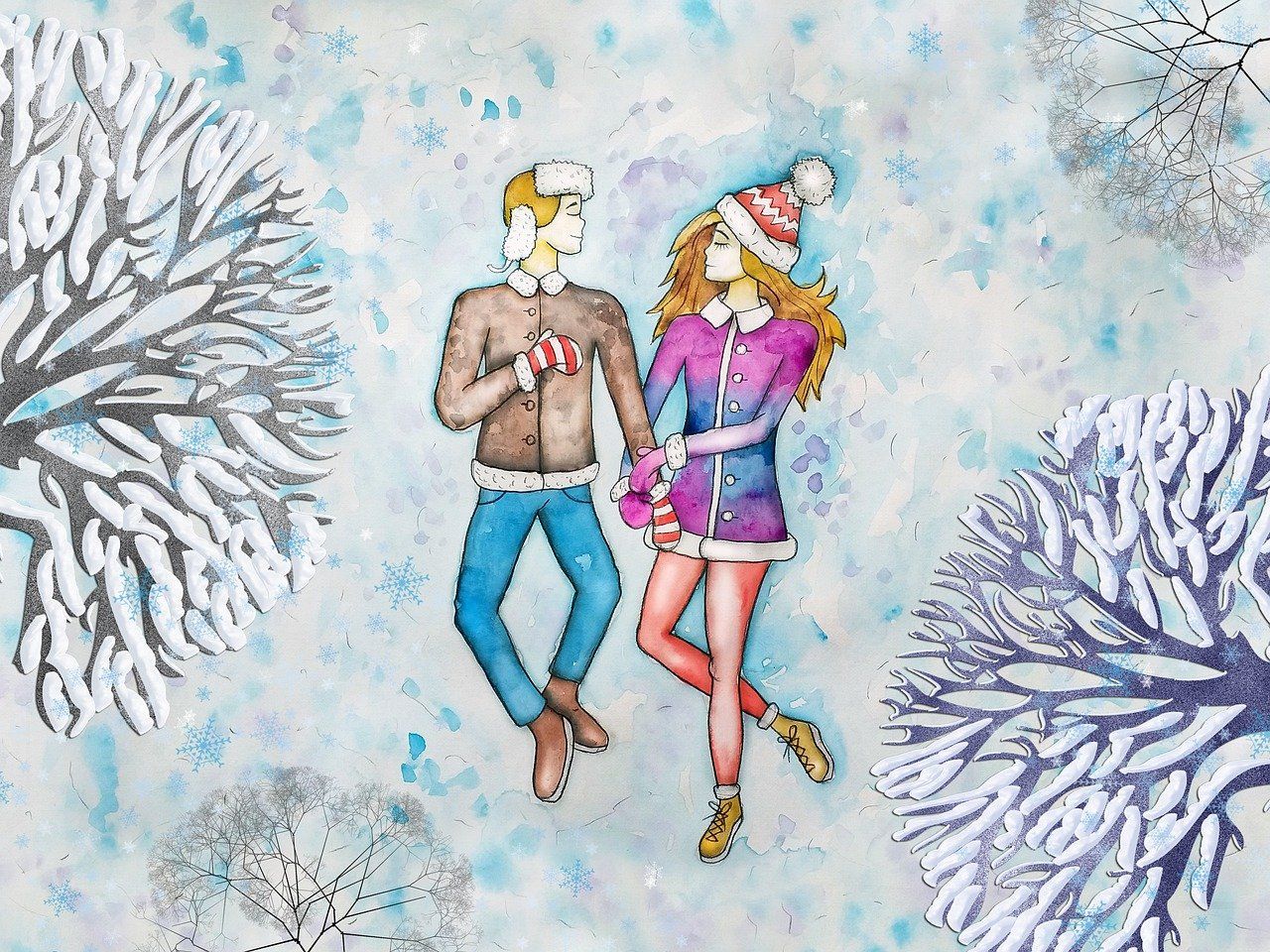
The stars sparkled above him in the sky, but he was dizzy, his feet stumbled, and he felt sick. In the distance, he saw the lights of a village and with his last strength, he arrived at the village and found shelter in a simple dwelling. He stayed there that night and also the next day because his body needed rest and refreshment. After a few days, he hurriedly continued his journey to the north. He didn’t speak to anyone about his haste or his grief. Some things can only be felt by human nature.
One evening, he walked across the land and the air felt icy. Along the side of the road, there grew a willow that reminded him of home. He was tired so he sat down under the tree and fell asleep. In his dream, the tree seemed like a strong old man, the “willow father,” who took his son in his arms to carry him back home.
Then he dreamt that it was really the old willow from his town that had come to look for him and had found him. He brought him back to the little garden by the riverbank and there stood Joanna with her golden crown to welcome him. Then two figures appeared and he remembered that they were the gingerbread figures. “Thank you for setting us free,” they said. “We learned from you that thoughts and feelings must be spoken freely, otherwise nothing happens. We did that and now we are engaged.” Then they walked hand in hand towards the church.
The great church door flew open and the soft tones of music sounded from the organ. The gingerbread couple said that Knud and Joanna should go in first. They knelt at the altar and Joanna bent her head over him and her icy tears fell on his face. Her heart melted for him because of his strong love and then he woke up. He was still under the willow in a strange land on a cold winter evening while snow and hail hit his face.
“That was the happiest hour of my life,” he said, “although it was only a dream. Oh, let me dream this again.” Then he closed his eyes again and slept and dreamed on.
Towards morning, a large amount of snow fell but he was still asleep. When the villagers went outside to go to church, they saw a workman sitting under the willow by the side of the road, but the workman had frozen to death.

